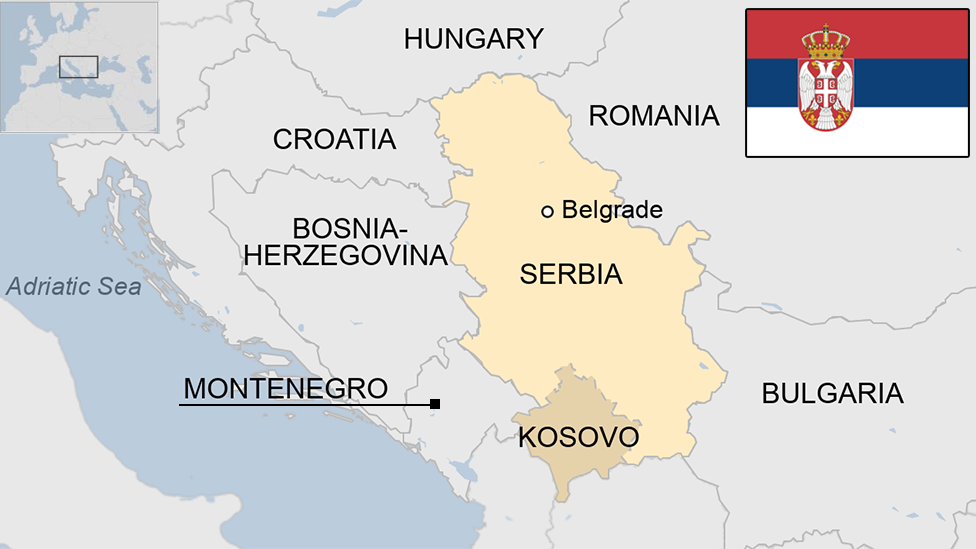Serbia elections: Radical Seselj back in parliament
- Published
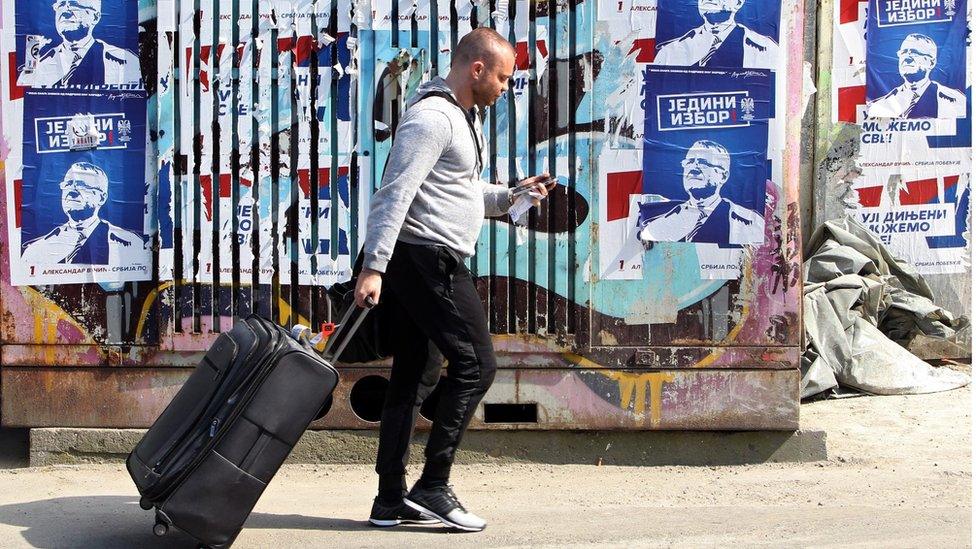
The Radical Party's election campaign has seen them return to parliament in Belgrade
Superficially, there is a distinctly '90s feel to the results of Serbia's third parliamentary election in less than four years.
The leaders of each of the three most successful parties - incumbent Prime Minister Aleksandar Vucic of the Progressives, the Socialists' Ivica Dacic and Radical Party founder Vojislav Seselj - all played their parts in the disastrous decade when Slobodan Milosevic was president.
Since 2008, Mr Vucic has recast himself as a pro-EU reformer - and his Progressives have taken almost half the votes in each of the past two elections. Mr Dacic has kept his Socialists in consecutive coalition governments and led negotiations to normalise relations with Kosovo.
Both have voiced their regret about the events of the 1990s.
Serbia's pro-EU Prime Minister Vucic claims election victory
"We all made some terrible mistakes," Mr Vucic told the BBC in 2013. "We need to find a better way for Serbia."
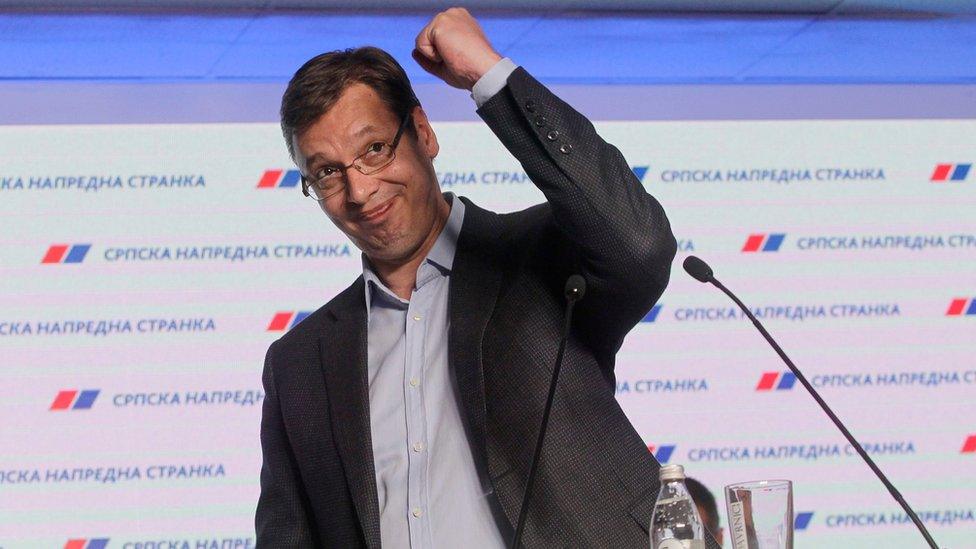
Aleksandar Vucic has claimed victory in Sunday's elections
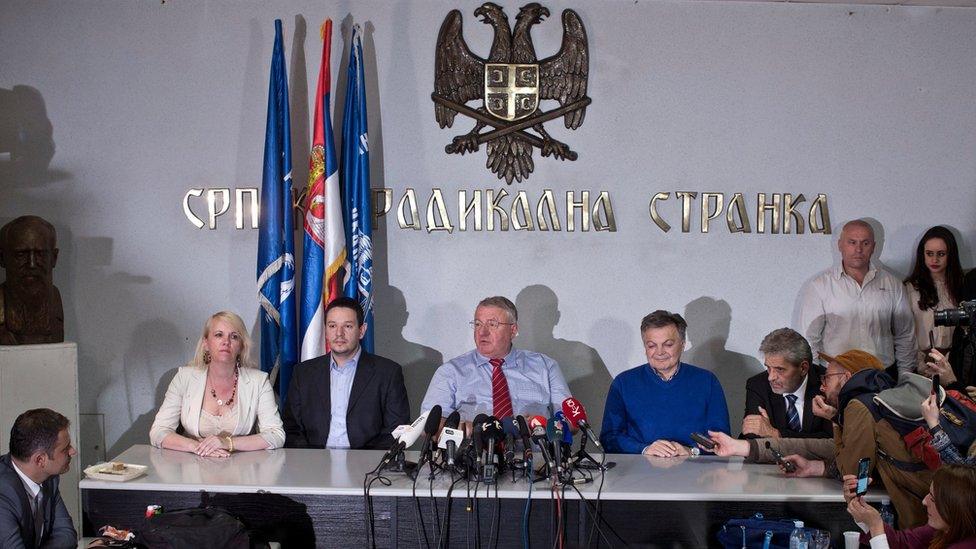
Vojislav Seselj (centre) was acquitted of war crimes relating to the Balkan Wars
Only Mr Seselj remains unrepentant. He spent more than a decade in custody at The Hague, before the International Criminal Tribunal for the Former Yugoslavia finally acquitted him of war crimes last month.
On his return to the political scene, his rhetoric was as fiery as ever. The EU and Nato are one and the same, he says; those who support them are traitors to Serbia.
Clearly it is a line that retains some appeal. After missing the 5% threshold to enter parliament in the 2012 and 2014 elections, the Radicals are back, with around 8% of the vote.
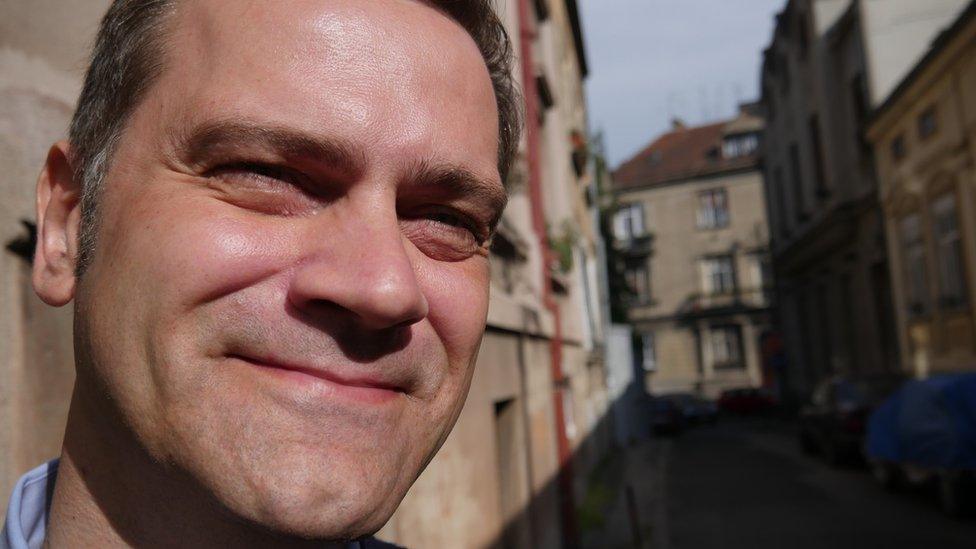
Poverty and unemployment are the real threat for Serbians, says left-wing politician Borko Stefanovic
Internationally, Mr Seselj's return to parliament is bound to raise eyebrows and even concerns. But in Serbia there is a more nuanced view.
"The right-wing parties are not the real threat," says Borko Stefanovic, a former senior figure in the Democratic Party who recently founded the Serbian Left.
"The real threat is poverty, unemployment and the lack of any perspective for our youth. You can get a job only if you're a member of the Progressive Party."
Veteran political commentator Bosko Jaksic suggests Mr Vucic may even welcome the return of his former mentor.
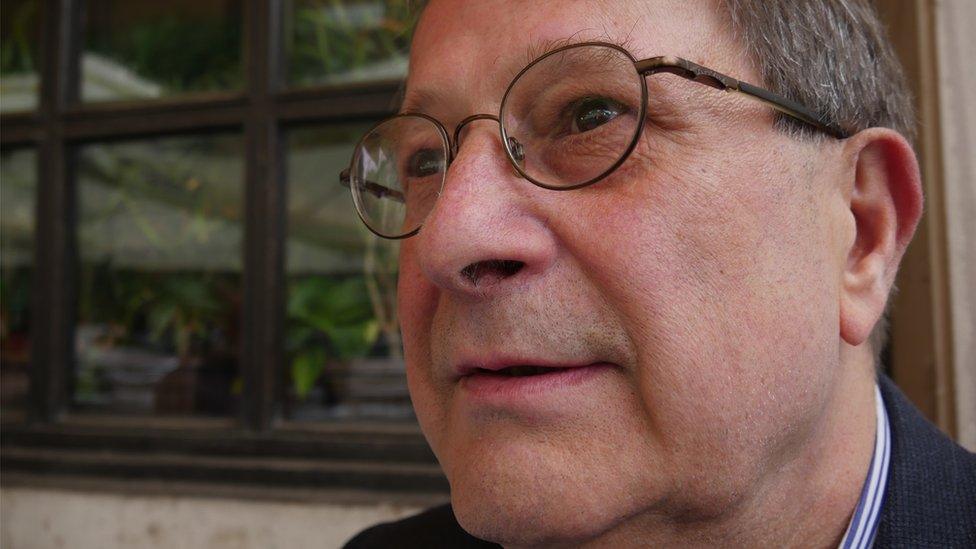
PM Vucic is appeasing the EU with reforms, says veteran commentator Bosko Jaksic
Not as an ally, but as a living retort to critics who suggest the prime minister is becoming autocratic.
"Vucic has learned how to appease politicians in Brussels - and he's doing it very well. He can do some necessary reforms - but also some unnecessary political moves relating to free speech and freedom of the media."
For his part, Mr Seselj has offered to join a coalition with the Progressives - as long as they drop Serbia's EU membership application. A response in the affirmative seems highly unlikely.

The key players

Serbian Progressive Party (SNS), led by Aleksandar Vucic, centre-right
Founded in 2008, it has been in power since 2012. It won an overall majority two years ago, an unprecedented event in Serbia's short democratic history. It wants to pursue EU membership while maintaining good relations with Russia.
Socialist Party of Serbia (SPS), led by Ivica Dacic, left
Founded in 1990 by Serbia's late strongman Slobodan Milosevic. Its main goals are achieving more social justice, social welfare and finding a political solution for Kosovo. But it has supported austerity policies implemented by its coalition partner SNS.
Serbian Radical Party (SRS), led by Vojislav Seselj, ultra-nationalist
Founded in 1991, promoted since its early days a "Greater Serbia" comprising parts of Bosnia and Croatia where Serbs formed the majority. It opposes EU membership and supports a closer alliance with Russia.
Sources: AP, Reuters
- Published31 March 2016
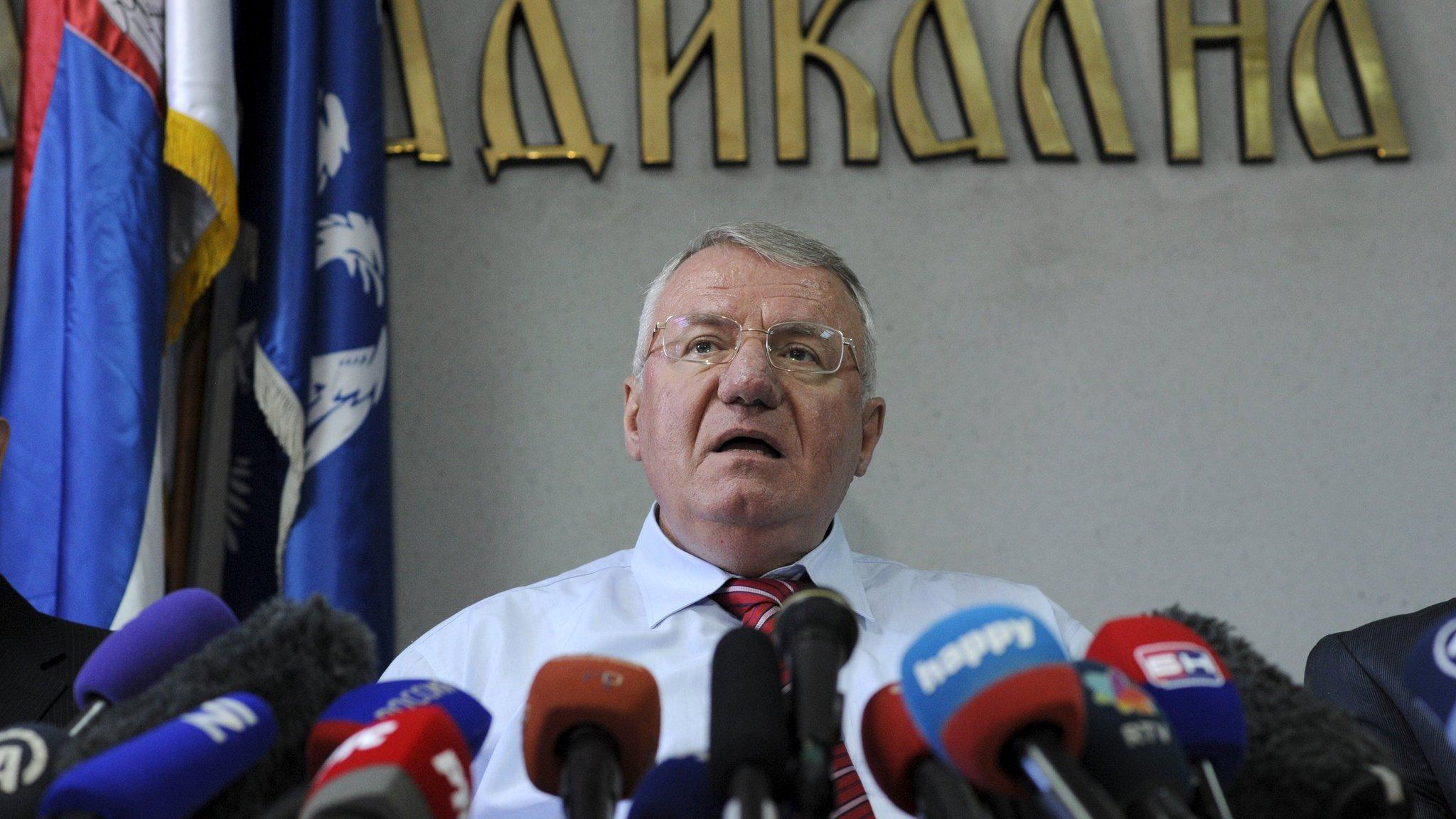
- Published21 January 2014
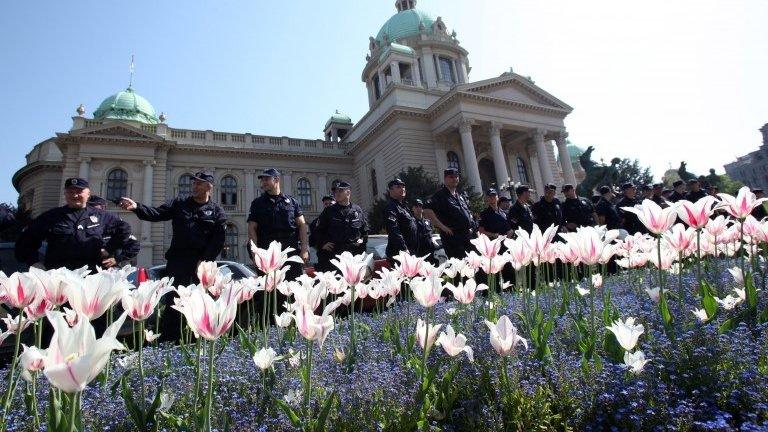
- Published28 January
